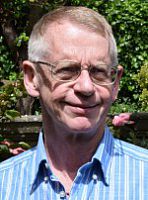
Dr Duncan Campbell
| Post: | Visiting Fellow (Law) |
| Other posts: | Honorary Senior Fellow (Law) |
| Email: | Duncan.Campbell@sussex.ac.uk |
Role
Duncan Campbell is computer forensic expert witness, an investigative journalist, author, television producer and a privacy and queer rights campaigner. Campbell has provided forensic scientific reports on scientific and technical matters concerned with computers, communications, electronics and electronic equipment in several hundred civil and criminal cases since 1979. He has given oral and written evidence to the European Court of Human Rights, the UK Court of Appeal, and to the High Courts and lower courts in England, Scotland, and Ireland, and to Federal Courts in the United States. His work has included serious terrorism and fraud cases involving forensic analysis of large data sets, as well as cases of major drug trafficking and of exploitation of child abuse images. In 2020 and subsequently he was the UK’s leading forensic expert on EncroChat, a customised encrypted mobile network used by organised crime.
He is currently researching technical and legal aspects of Criminally Dedicated Secure Communications Systems (CDSC or “Crimephones”), including EncroChat, with Dr Jess Shurson of LPS. He is a member of the Sussex Centre for Law and Technology (SCLT).
In 1988, Campbell was a co-founder of the UK LGBTQ+ rights group Stonewall with Sir Ian McKellen, Lord Cashman and others.
As an award winning investigative journalist, Campbell specialised in privacy, civil liberties and surveillance issues. His best-known investigations in the 1970s and 1980s led to major legal clashes with successive British governments. In 1976, he was the first journalist to reveal the existence of the global British electronic intelligence agency GCHQ (Government Communications Headquarters). His journalism led to his arrest and unsuccessful prosecution in the controversial “ABC case” of 1978 using charges under the now repeated Official Secrets Acts.
In 1988, he revealed the existence of the ECHELON project, which then became controversial globally. In 1998, he was appointed by the European Parliament to report on the development of surveillance technology and the risk of abuse of economic information, especially in relation to the ECHELON system. His report, “Interception Capabilities 2000” was approved by the European Parliament in April 1999 and presented to parliament in Brussels in February 2000. In July 2000, the European Parliament appointed a committee of 36 MEPs to further investigate the ECHELON system.
In 2020, Campbell’s work on interception was the subject of a specific section of the Science Museum exhibition “Top Secret”. The exhibition marked the centenary of interception (or “signals intelligence” or “sigint”) in the United Kingdom, and of the British signals intelligence agency, GCHQ.
From 1978 to 1994 Campbell was an investigative writer, then an associate editor and finally the chairman of the British political weekly New Statesman. He founded production company, IPTV Ltd, in 1990. IPTV has made investigative documentaries for Britain’s Channel Four television and contributed documentary programs and reports inserts for Channel 4 News, Newsnight and overseas television broadcasters. In 2020, IPTV Ltd was replaced by 2QQ Ltd.
Campbell has presented on electronic intelligence and security matters to the Foreign Affairs Committee of the Bundestag, and to Committees of the Diet (Japan), the Swedish, Danish and Dutch parliaments; and the intelligence supervisory committee of the Belgian government. He formerly lectured on training courses for international military and diplomatic staff conducted by the Geneva Centre for Security Policy, and at the Ecole Nationale Superieure des Telecommunications, Paris.
Campbell graduated in Physics from Oxford University and further trained in Operations Research. He is a Doctor of the University (D.Univ) of the University of Sussex, honoris causa, and a Senior Visiting Research Fellow to LPS. He was formerly a consultant to the European Parliament on communications interception (1998-2001), a visiting Fellow at the Electronic Privacy Information Center, Washington D.C., and a consultant on telecommunications to the Technology Faculty of the Open University (U.K.)
He is a Fellow of the Royal Society of Arts (FRSA) and a former member of the Institute of Telecommunications Professionals (ITP), and of the Royal United Services Institution for Defence Studies. During 2020, Campbell was a member and deputy chair of Police Scotland’s External Reference Group on Cyber Kiosks.
From 1976 to 1982, he was a consultant on Telecommunications to the Technology Faculty of the Open University and in that capacity wrote a textbook on “The British Telephone System” for the University’s Systems Behaviour course (T241). He is the author of War Plan UK (1983), a cold war history of civil defence and nuclear war planning.
Since 2003 he has carried out computer and computer-based research and forensic investigations as an expert witness and has designed specialised computer procedures supporting forensic investigations of digital and internet evidence. From 2000 to 2008 Campbell taught computer-based research methods ( “Computer Assisted Research” (CAR)) as a Visiting Fellow of Bournemouth University Media School.
In 1999 and 2000, Campbell participated in a joint international investigation of systematic smuggling and tax evasion by multinational tobacco companies, publishing reports in the Guardian and internationally from January 2000 onwards. The investigation was led by the International Consortium of Investigative Journalists (ICIJ), Washington DC. Campbell then gave evidence to the parliamentary committee on Health, leading to a full-scale British government investigation of British American Tobacco plc, the world’s second largest international tobacco company.
In 2000, Campbell was appointed one of two court expert witnesses in the proposed trial of former Army officer Lt Col Nigel Wylde under the 1989 Official Secrets Act. After receiving his report showing that secrets which were allegedly revealed by the former officer were in the public domain, the government abandoned the case in November 2000.

